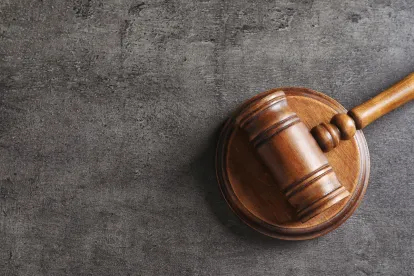As the 2019 novel coronavirus (COVID-19) situation continues to develop, few businesses are immune from its economic effects. Many, if not most, businesses have seen a material reduction in revenue on account of the virus as governments react and consumers are subject to stay at home orders. And as income has declined, it has become increasingly difficult for businesses to meet their pre-existing contractual obligations. As a result, contractual force majeure provisions have become a hot topic.
WHAT IS A FORCE MAJEURE PROVISION?
In short, a force majeure provision excuses a party’s breach of contract when specified, extraordinary events cause the party’s inability to meet its obligation. Such specified, extraordinary events commonly include war, strife, labor strikes, natural disasters and the like. Some, though far from all, may include disease, epidemics, pandemics and quarantines. Because improper enforcement of a force majeure provision would amount to judicial interference with a party’s private contractual rights, these clauses are generally construed very narrowly. Therefore, in our current situation, parties must ask a threshold question before invoking their contract’s force majeure clause: “Is COVID-19 covered by any of the general events listed in my contract?” A state’s highest court may have just helped answer that question.
PENNSYLVANIA SUPREME COURT RULING
In Friends of DeVito v. Wolf, -- A.3d --, 2020 WL 1847100 (Pa. Apr. 13, 2020), four Pennsylvania businesses, including the political candidate committee “Friends of Danny DeVito” (not to be confused with another Danny DeVito in Pennsylvania, albeit starring in the popular television show It’s Always Sunny in Philadelphia), brought a lawsuit challenging an executive order closing all non-life-sustaining businesses to control the spread of the coronavirus. Pennsylvania law allows the governor to take certain emergency measures when faced with a natural disaster and so, the question for the Pennsylvania Supreme Court (the Court) was, “Is COVID-19 a natural disaster?”
The Court answered this question with a resounding “yes.” While an argument can be made for limiting the opinion to its particular interpretation of natural disaster under Pennsylvania law, the Court’s ultimate conclusion does not appear to be so limited. In upholding the executive order, the Court expressly found that the “COVID-19 pandemic is, by all definitions, a natural disaster and a catastrophe of massive proportions.” (Emphasis added.)
PANDEMICS AND NATURAL DISASTERS IN FORCE MAJEURE PROVISIONS
Given the relative novelty of COVID-19, the Friends of DeVito decision stands as a unique indication of whether courts will excuse parties from their contractual obligations on account of the current situation. Many force majeure clauses specify natural disasters as one of the extraordinary events that will excuse performance without liability. If COVID-19 is, “by all definitions,” a natural disaster, is there any justifiable reason to define the term differently in a force majeure provision? Time will tell.



 />i
/>i

